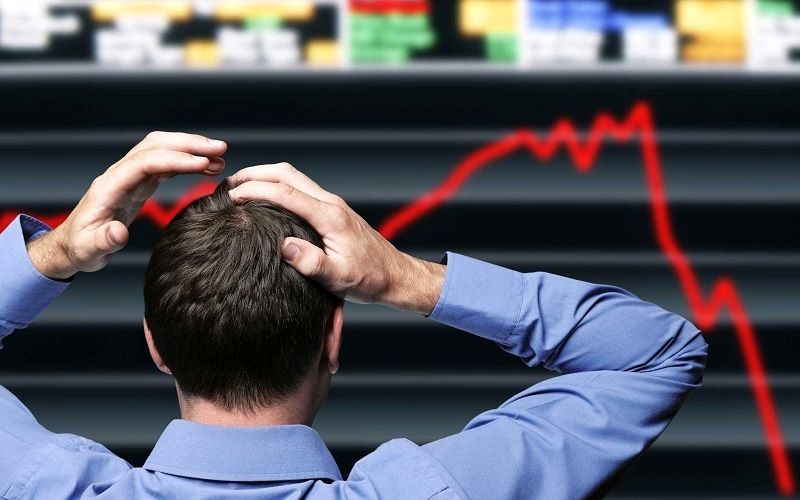Analyzing the Impact of Global Economic Crises on the Forex Market
The Forex market, as the largest financial market in the world, is highly sensitive to global economic events and crises. Economic crises, whether on a national or international scale, can trigger significant fluctuations in currency exchange rates. These crises are often triggered by factors such as economic recessions, financial crises, political instability, and geopolitical developments. In this article from Toofan Trading Academy, we will analyze the impact of global economic crises on the Forex market and how traders respond to these crises.
1. Sharp Volatility in Currency Exchange Rates
One of the most prominent effects of global economic crises on the Forex market is the increased volatility in currency exchange rates. During crises, investors seek to protect their capital and tend to move their assets from riskier currencies to safer ones. This shift in supply and demand leads to sharp fluctuations in currency values.
Example: The 2008 Financial Crisis
During the global financial crisis of 2008, many currencies depreciated, while safe-haven currencies like the U.S. dollar and Japanese yen appreciated as investors sought to safeguard their assets. This highlights how, in times of crisis, major currencies typically experience greater volatility, creating both opportunities and challenges for traders.
2. Increased Demand for Safe-Haven Currencies
In times of economic crises, traders and investors gravitate toward safe-haven currencies such as the U.S. dollar (USD), Swiss franc (CHF), and Japanese yen (JPY). These currencies are seen as stable reserves because they typically maintain their value better and are more resilient to global economic shocks.
Read more: What is recession and what causes it?
Why the U.S. Dollar?
The U.S. dollar, as the world’s primary reserve currency, is often favored during crises. This is due to the economic strength of the United States, the depth of its financial markets, and the role of the dollar as the base currency in many international trade transactions. Consequently, demand for the dollar increases during financial crises, leading to its appreciation against other currencies.
3. Impact of Monetary and Fiscal Policies
Governments and central banks often respond to economic crises by adopting new fiscal and monetary policies to mitigate the negative effects. These policies can include lowering interest rates, increasing liquidity, and even implementing quantitative easing (QE) programs. Such actions directly impact currency exchange rates, and Forex traders need to analyze these policies closely.
Lowering Interest Rates
One of the key tools central banks use to counter economic crises is lowering interest rates. Reducing interest rates diminishes the attractiveness of investing in that currency, potentially leading to its depreciation. For example, during the 2008 economic crisis, many central banks, including the U.S. Federal Reserve and the European Central Bank, sharply reduced interest rates to stimulate their economies, resulting in significant changes in currency values.

4. Rising Political Instability and Risks
Global economic crises are often accompanied by increased political and geopolitical instability. This leads to greater uncertainty in financial markets, particularly in the Forex market. Investors seek currencies with lower political risks while avoiding major volatility.
Example: The Eurozone Crisis
The European sovereign debt crisis in 2010 is a prime example where political and economic instability led to significant changes in currency values. The euro, as the common currency of the European Union, saw a sharp decline in value, and this crisis had widespread effects on other global currencies as well.
5. The Role of Gold as a Currency Alternative
In times of crisis, not only do safe-haven currencies gain appeal, but alternative assets such as gold are also considered safe havens. Forex traders should pay attention to the relationship between gold prices and currency values. Gold typically has an inverse relationship with the U.S. dollar, meaning that when the dollar weakens, gold prices tend to rise, and vice versa.
Gold as a Safe Haven Asset
During economic crises, gold is highly regarded as a safe-haven asset. For instance, during the 2008 financial crisis, gold prices saw a significant increase as investors sought to protect the value of their assets against inflation and currency depreciation. In such scenarios, Forex traders can take advantage of this inverse relationship to optimize their trading decisions.
Read more: Trading Strategies in Volatile Forex Markets
6. Reduced Liquidity in the Market
Economic crises often lead to reduced liquidity in financial markets. Lower liquidity means reduced trading volumes and wider spreads between buy and sell prices. In the Forex market, this can increase trading costs and reduce opportunities for profitability.
Impact of Reduced Liquidity
During crises, central banks and financial institutions may inject liquidity into the markets, but at the same time, many financial institutions may limit their trading activities to avoid further losses. This reduced liquidity can result in abnormal and unpredictable fluctuations in the market, which Forex traders must be mindful of.
7. Trading Opportunities During Crises
While global economic crises present numerous challenges for traders, they also create new opportunities. The increased volatility in the Forex market during crises allows active traders to capitalize on emerging trends and patterns in price movements.
Exploiting Volatility
Professional traders often thrive during times of crisis by exploiting market volatility. Through careful analysis of economic news and the use of technical analysis, they attempt to identify the best entry and exit points to profit from rapid changes in currency values. However, these trades require precise risk management.
Conclusion
Global economic crises have far-reaching effects on the Forex market and can lead to significant volatility in currency exchange rates. Forex traders must closely analyze market trends, consider fiscal and monetary policies, and apply risk management strategies during crises. While such crises pose challenges, they also present new opportunities for traders to profit by using a combination of fundamental and technical analyses. By staying informed and adaptable, traders can successfully navigate the Forex market during periods of economic uncertainty.
